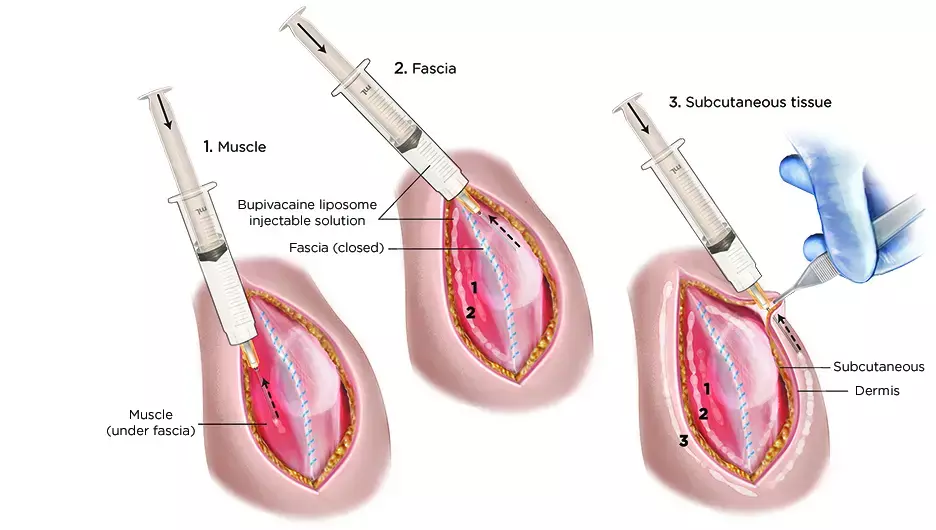- Home
- Medical news & Guidelines
- Anesthesiology
- Cardiology and CTVS
- Critical Care
- Dentistry
- Dermatology
- Diabetes and Endocrinology
- ENT
- Gastroenterology
- Medicine
- Nephrology
- Neurology
- Obstretics-Gynaecology
- Oncology
- Ophthalmology
- Orthopaedics
- Pediatrics-Neonatology
- Psychiatry
- Pulmonology
- Radiology
- Surgery
- Urology
- Laboratory Medicine
- Diet
- Nursing
- Paramedical
- Physiotherapy
- Health news
- Fact Check
- Bone Health Fact Check
- Brain Health Fact Check
- Cancer Related Fact Check
- Child Care Fact Check
- Dental and oral health fact check
- Diabetes and metabolic health fact check
- Diet and Nutrition Fact Check
- Eye and ENT Care Fact Check
- Fitness fact check
- Gut health fact check
- Heart health fact check
- Kidney health fact check
- Medical education fact check
- Men's health fact check
- Respiratory fact check
- Skin and hair care fact check
- Vaccine and Immunization fact check
- Women's health fact check
- AYUSH
- State News
- Andaman and Nicobar Islands
- Andhra Pradesh
- Arunachal Pradesh
- Assam
- Bihar
- Chandigarh
- Chattisgarh
- Dadra and Nagar Haveli
- Daman and Diu
- Delhi
- Goa
- Gujarat
- Haryana
- Himachal Pradesh
- Jammu & Kashmir
- Jharkhand
- Karnataka
- Kerala
- Ladakh
- Lakshadweep
- Madhya Pradesh
- Maharashtra
- Manipur
- Meghalaya
- Mizoram
- Nagaland
- Odisha
- Puducherry
- Punjab
- Rajasthan
- Sikkim
- Tamil Nadu
- Telangana
- Tripura
- Uttar Pradesh
- Uttrakhand
- West Bengal
- Medical Education
- Industry
Liposomal Bupivacaine may not reduce pain after abdominal wall reconstruction surgery

Multiple pain control strategies that do not rely on opioids have been developed in recent years, especially for postoperative pain. The most commonly used anaesthesia to replace opioid is simple bupivacaine.
In a recent study, researchers reported that in patients undergoing abdominal wall reconstruction, liposomal bupivacaine transversus abdominus plane block did not reduce the postoperative opioid use when compared with simple bupivacaine and a placebo. The research has been published in the journal Annals of Surgery on December 02, 2020.
Overuse of opiates in surgical patients has been associated with dependence and poor patient outcomes. Ultrasound-guided transverse abdominal plane (TAP) blocks provide a means for administering non-narcotic pain control in patients undergoing abdominal surgery. Despite the widespread use of liposomal bupivacaine in transversus abdominis plane block, there is inadequate evidence demonstrating its efficacy in open abdominal wall reconstruction. Therefore, researchers of the Cleveland, Ohio, conducted a study to evaluate the efficacy of liposomal bupivacaine on postoperative opioid requirement and pain following abdominal wall reconstruction.
It was a single-center, double-blind, placebo-controlled prospective study conducted between July 2018 and November 2019. Researchers included a total of 164 patients who underwent open, elective, ventral hernia repairs with mesh placed in the retromuscular position. Researchers randomly performed transversus abdominis plane block with liposomal bupivacaine (n=57), simple bupivacaine (n=55), or normal saline (placebo, n=52). The major outcome assessed was the opioid requirements in the first 72 hours after surgery. Researchers also assessed the total inpatient opioid use, pain scores determined using a 100 mm visual analogue scale, length of hospital stay, and patient-reported quality of life.
Upon analysis, the researchers found no differences in the total opioid used in the first 72 hours after surgery as measured by morphine milligram equivalents when liposomal bupivacaine compared to simple bupivacaine and placebo (325 ± 225 vs 350 ± 284 vs 310 ± 272, respectively). Similarly, they found no differences in total inpatient opioid use, pain scores, length of stay, and patient-reported quality of life.
The authors concluded, "There are no apparent clinical benefits to using liposomal bupivacaine transversus abdominis plane block when compared to simple bupivacaine and placebo for open abdominal wall reconstruction".
For further information:
Medical Dialogues Bureau consists of a team of passionate medical/scientific writers, led by doctors and healthcare researchers. Our team efforts to bring you updated and timely news about the important happenings of the medical and healthcare sector. Our editorial team can be reached at editorial@medicaldialogues.in.
Dr Kamal Kant Kohli-MBBS, DTCD- a chest specialist with more than 30 years of practice and a flair for writing clinical articles, Dr Kamal Kant Kohli joined Medical Dialogues as a Chief Editor of Medical News. Besides writing articles, as an editor, he proofreads and verifies all the medical content published on Medical Dialogues including those coming from journals, studies,medical conferences,guidelines etc. Email: drkohli@medicaldialogues.in. Contact no. 011-43720751


